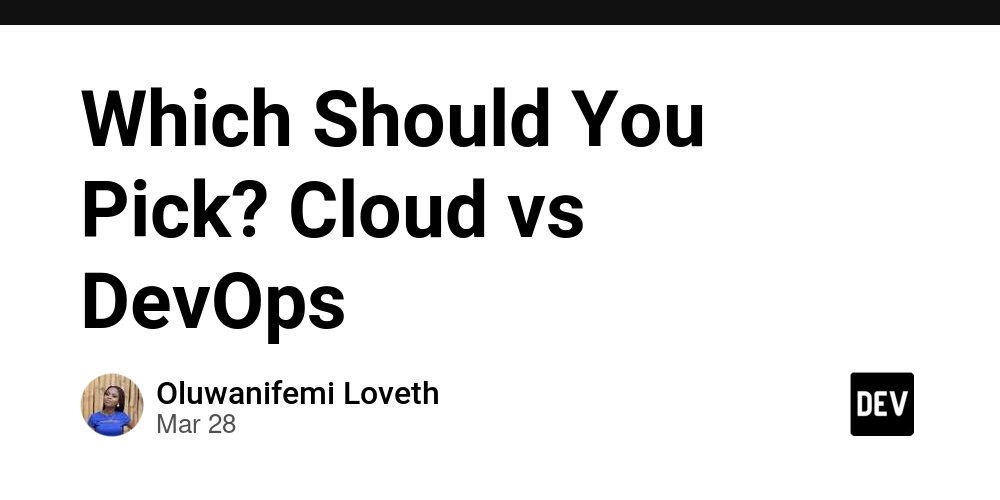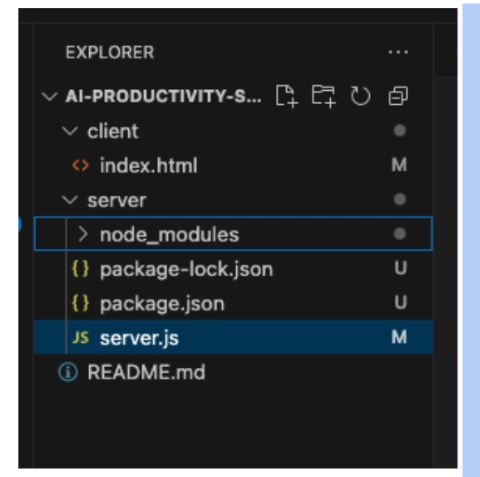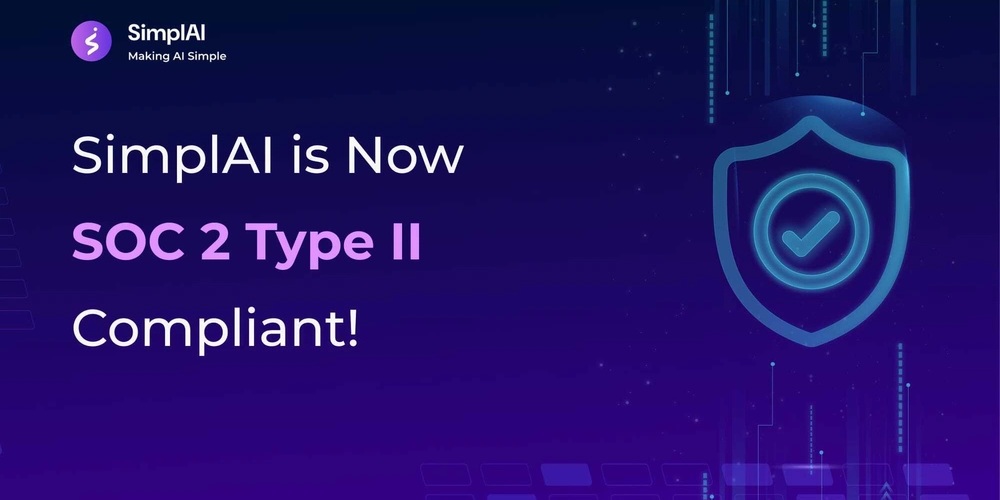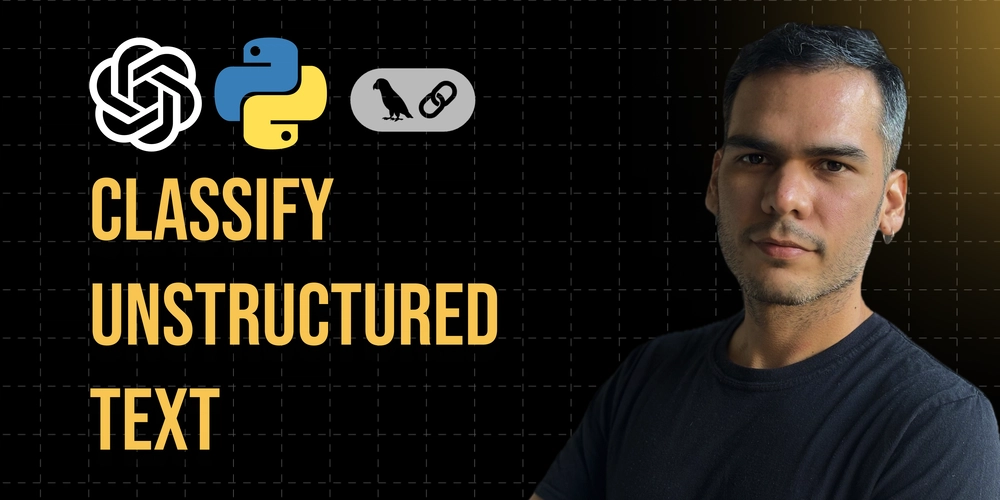Which Should You Pick? Cloud vs DevOps
Not long after I began my career in Cloud Engineering, I began to hear about DevOps. Yes, we know that things are changing quite rapidly, but what is DevOps when I haven't even mastered Cloud? I wondered. I decided to investigate their differences, similarities, and connections and documented my findings in this article. Are you also curious about this? Keep reading. Before we go on to the full details, let’s define what they each mean. What is Cloud Engineering? Cloud Engineering is the act of designing, building, and maintaining cloud infrastructure, making sure they are scalable, reliable, and secure, by leveraging cloud technologies like virtualization, storage, and networking. A cloud engineer is responsible for designing and managing cloud solutions that help an organization operate with greater efficiency, security, and attention to detail using platforms like AWS, Azure, and Google Cloud. What is DevOps Engineering? DevOps Engineering is the practice of bridging the gap between software development (Dev) and IT operations (Ops) to create a more streamlined and efficient software delivery lifecycle, ultimately leading to faster and more reliable software releases. DevOps is a combination of the words ‘development’ and ‘operations’. DevOps Engineers focus on improving the process of building, testing and releasing software quickly and efficiently primarily through automation. How did DevOps and Cloud come to be? In times past, after software developers build an application or product, they were often faced with the hassle of getting the product out to customers or users quickly and efficiently. The process was often long, tedious, and filled with errors. DevOps emerged as a set of practices to foster collaborations between the Development and Operations teams, and automate processes to accelerate software development and deployment cycles, before it has now evolved into a full-time role. Cloud Computing, on the other hand, emerged to solve the issue of organizations having physical data centres and served as a way to deliver computing resources (servers, storage, networking) over the internet, offering benefits such as scalability, flexibility, and cost-effectiveness. Differences between Cloud and DevOps Engineers Cloud and DevOps engineering are two different but intricately connected fields. Cloud engineers focus on designing, implementing, and managing cloud infrastructure, while devOps engineers focus on bridging the gap between software development and the IT operations team, ensuring that applications are developed, tested, and released quickly and reliably. While DevOps engineers focus on automating the software development process, Cloud engineers, on the other hand, are responsible for designing and managing the infrastructure on which those applications run. In the long run, they both work toward improving system performance and efficiency, howbeit from different perspectives. Responsibilities Cloud Engineer DevOps Engineer Design and implement cloud solutions Automate software delivery pipeline Manage and maintain cloud infrastructure Develop and maintain CI/CD pipelines to enable frequent and reliable software releases Ensuring the security and reliability of cloud environments Monitor applications after deployment Optimize cloud resources for performance and cost-effectiveness Facilitate team collaborations between Development, Operations, and Quality assurance Teams Troubleshoot and resolve issues with cloud systems Manage and provision infrastructure through code, enabling repeatable and scalable deployments Skills Cloud Engineer DevOps Engineer Cloud platforms (e.g., AWS, Azure, Google Cloud) Proficiency in programming languages such as Python and JavaScript Virtualization technologies Software and network security Networking and storage technologies Cloud computing Scripting and automation tools Scripting and automation tools Cloud security principles and practices Continuous Integration and deployment tools Tools and Technologies Cloud Engineer DevOps Engineer Virtualization: VMware, Hyper-V, etc. Version Control Tools: GitHub, BitBucket,etc. Cloud Platforms: AWS, Azure, Google Cloud CI / Deployment Automation tools eg. Jenkins Containerization: Docker, Kubernetes Containerization: Docker, Kubernetes Infrastructure as Code (IaC): Terraform, Ansible, etc. Infrastructure as Code (IaC): Terraform, Ansible, etc. Monitoring and Logging: Prometheus, ELK Stack, etc Monitoring and Logging: Prometheus, ELK Stack, etc Some skills, tools, and technologies are common to both job roles, but they are used in different ways. Salary Range The salary range of a DevOps and cloud engineer is quite close. According to Indeed, the average base salary of a DevOps Engineer in the united states is $127, 282 while that of a cloud engineer i

Not long after I began my career in Cloud Engineering, I began to hear about DevOps. Yes, we know that things are changing quite rapidly, but what is DevOps when I haven't even mastered Cloud? I wondered.
I decided to investigate their differences, similarities, and connections and documented my findings in this article.
Are you also curious about this? Keep reading.
Before we go on to the full details, let’s define what they each mean.
What is Cloud Engineering?
Cloud Engineering is the act of designing, building, and maintaining cloud infrastructure, making sure they are scalable, reliable, and secure, by leveraging cloud technologies like virtualization, storage, and networking.
A cloud engineer is responsible for designing and managing cloud solutions that help an organization operate with greater efficiency, security, and attention to detail using platforms like AWS, Azure, and Google Cloud.
What is DevOps Engineering?
DevOps Engineering is the practice of bridging the gap between software development (Dev) and IT operations (Ops) to create a more streamlined and efficient software delivery lifecycle, ultimately leading to faster and more reliable software releases.
DevOps is a combination of the words ‘development’ and ‘operations’.
DevOps Engineers focus on improving the process of building, testing and releasing software quickly and efficiently primarily through automation.
How did DevOps and Cloud come to be?
In times past, after software developers build an application or product, they were often faced with the hassle of getting the product out to customers or users quickly and efficiently. The process was often long, tedious, and filled with errors. DevOps emerged as a set of practices to foster collaborations between the Development and Operations teams, and automate processes to accelerate software development and deployment cycles, before it has now evolved into a full-time role.
Cloud Computing, on the other hand, emerged to solve the issue of organizations having physical data centres and served as a way to deliver computing resources (servers, storage, networking) over the internet, offering benefits such as scalability, flexibility, and cost-effectiveness.
Differences between Cloud and DevOps Engineers
Cloud and DevOps engineering are two different but intricately connected fields. Cloud engineers focus on designing, implementing, and managing cloud infrastructure, while devOps engineers focus on bridging the gap between software development and the IT operations team, ensuring that applications are developed, tested, and released quickly and reliably.
While DevOps engineers focus on automating the software development process, Cloud engineers, on the other hand, are responsible for designing and managing the infrastructure on which those applications run.
In the long run, they both work toward improving system performance and efficiency, howbeit from different perspectives.
Responsibilities
| Cloud Engineer | DevOps Engineer |
|---|---|
| Design and implement cloud solutions | Automate software delivery pipeline |
| Manage and maintain cloud infrastructure | Develop and maintain CI/CD pipelines to enable frequent and reliable software releases |
| Ensuring the security and reliability of cloud environments | Monitor applications after deployment |
| Optimize cloud resources for performance and cost-effectiveness | Facilitate team collaborations between Development, Operations, and Quality assurance Teams |
| Troubleshoot and resolve issues with cloud systems | Manage and provision infrastructure through code, enabling repeatable and scalable deployments |
Skills
| Cloud Engineer | DevOps Engineer |
|---|---|
| Cloud platforms (e.g., AWS, Azure, Google Cloud) | Proficiency in programming languages such as Python and JavaScript |
| Virtualization technologies | Software and network security |
| Networking and storage technologies | Cloud computing |
| Scripting and automation tools | Scripting and automation tools |
| Cloud security principles and practices | Continuous Integration and deployment tools |
Tools and Technologies
| Cloud Engineer | DevOps Engineer |
|---|---|
| Virtualization: VMware, Hyper-V, etc. | Version Control Tools: GitHub, BitBucket,etc. |
| Cloud Platforms: AWS, Azure, Google Cloud | CI / Deployment Automation tools eg. Jenkins |
| Containerization: Docker, Kubernetes | Containerization: Docker, Kubernetes |
| Infrastructure as Code (IaC): Terraform, Ansible, etc. | Infrastructure as Code (IaC): Terraform, Ansible, etc. |
| Monitoring and Logging: Prometheus, ELK Stack, etc | Monitoring and Logging: Prometheus, ELK Stack, etc |
Some skills, tools, and technologies are common to both job roles, but they are used in different ways.
Salary Range
The salary range of a DevOps and cloud engineer is quite close. According to Indeed, the average base salary of a DevOps Engineer in the united states is $127, 282 while that of a cloud engineer is #130,041.
In the same vein, According to Glassdoor’s July 2024 data, The average DevOps engineer salary is $106,517 while the average cloud engineer salary is similar at $114,544.
However in some cases, the salary of a DevOps engineer is higher than a cloud engineers'.
Certifications
Both job roles have different certifications, but some tools-specific certifications are common to both.
Cloud Engineering
- Cloud Provider Specific Certifications such as AWS Certified Solutions Architect – Associate, Google Associate Cloud Engineer, Azure Administrator Associate etc.
- Industry-Recognized Certifications such as CompTIA Cloud+, Certified Cloud Security Professional (CCSP) etc.
DevOps Engineering
- Cisco Certified DevNet Specialist—DevOps
- Microsoft Certified DevOps Engineer Expert credential
- AWS Certified DevOps Engineer - Professional
- HashiCorp Certified Terraform Associate
Similarities between a DevOps and Cloud Engineer
We have spoken about their differences, let’s also speak about the similarities and connection between them.
- Both roles require a good understanding of cloud computing concepts and technologies
- Both roles often work in office settings such as large technology firms where they may collaborate as part of an IT Team to complete projects.
- Automation is an integral part of both roles. DevOps Engineers automate the software build, test, and deployment processes, while Cloud Engineers use automation to provision and manage cloud resources efficiently.
- Both roles work collaboratively with cross functional teams that include developers, system administrators, network engineers etc.
- Both roles require skills in programming, scripting, and familiarity with DevOps tools and technologies.
Cloud-Native DevOps
Cloud-native DevOps originated from the combination of Cloud and DevOps Engineering where applications and Infrastructure are designed and deployed specifically for cloud environment.
Final Words
Cloud technologies are becoming more widespread and companies are hiring engineers with skills in both fields. There is now an overlap of these roles, for instance DevOps Engineers now work with cloud platforms to ensure seamless integration between development pipelines and cloud infrastructure. Similarly, Cloud Engineers are often responsible for automating infrastructure provisioning and setup.
This has led to new job titles and roles that combine skills from both disciplines, reflecting the need for engineers who can manage both software deployment and cloud infrastructure.
If you're a DevOps engineer, its quite easy to switch to cloud engineering and vice versa.
Keep learning and stay updated.











































































































































































![[The AI Show Episode 142]: ChatGPT’s New Image Generator, Studio Ghibli Craze and Backlash, Gemini 2.5, OpenAI Academy, 4o Updates, Vibe Marketing & xAI Acquires X](https://www.marketingaiinstitute.com/hubfs/ep%20142%20cover.png)




























































































































![[DEALS] The Premium Learn to Code Certification Bundle (97% off) & Other Deals Up To 98% Off – Offers End Soon!](https://www.javacodegeeks.com/wp-content/uploads/2012/12/jcg-logo.jpg)


![From drop-out to software architect with Jason Lengstorf [Podcast #167]](https://cdn.hashnode.com/res/hashnode/image/upload/v1743796461357/f3d19cd7-e6f5-4d7c-8bfc-eb974bc8da68.png?#)








































































































.png?#)

































_Christophe_Coat_Alamy.jpg?#)
 (1).webp?#)





































































































![Apple Considers Delaying Smart Home Hub Until 2026 [Gurman]](https://www.iclarified.com/images/news/96946/96946/96946-640.jpg)
![iPhone 17 Pro Won't Feature Two-Toned Back [Gurman]](https://www.iclarified.com/images/news/96944/96944/96944-640.jpg)
![Tariffs Threaten Apple's $999 iPhone Price Point in the U.S. [Gurman]](https://www.iclarified.com/images/news/96943/96943/96943-640.jpg)




































































































































